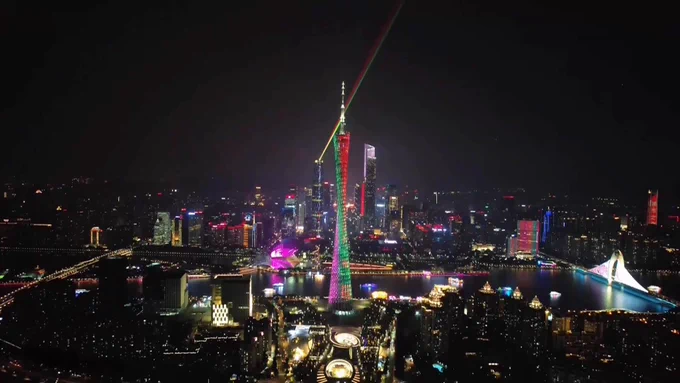Elixir, Nim, Rust, Ant Design components for React, PostgreSQL, LazyVim, DigitalOcean (and the American Moon documentary, link below) are the bee's knees.
Malaysia
Joined May 2007
- Tweets 144,190
- Following 1,991
- Followers 1,610
- Likes 242,363
Pinned Tweet
Intelligent cars - tech acronyms galore…technode.com/2023/07/06/xpen…
Malaysian w/Hakka characteristics retweeted
China is contributing annually more than 30% to the world economic growth, and its per capita emission is not among the highest in the world. It is recognized by the international community as one of the countries with the firmest will, the strongest actions, and the most remarkable results in fulfilling its emission reduction commitment, a Chinese envoy to the UN said on Thursday, rebutting the baseless U.S. accusations regarding China's climate policy.
"I also wish to indirectly point out that we have another permanent member of the Security Council whose total greenhouse gas emissions in history take up the first place in the world, and its per capita emission is always number one in the world. This permanent member of the Security Council has taken a major step backward in history by withdrawing twice from the Paris Agreement, severely undermining global climate governance efforts," said the envoy.
Malaysian w/Hakka characteristics retweeted
America CREATED China's Japan problem in the first place.
Commodore Perry's imperialism inspired Japan's domestic samurai fascism to expand beyond Japan's borders and join the "community" of American and European imperialists.
Malaysian w/Hakka characteristics retweeted
Japan was not "The West."
It was the first to imitate it.
After Commodore Perry’s gunboats forced open its ports in 1853, Japan realized what China already knew:
"Western civilization" was just a euphemism for industrialized coercion.
So it copied the machinery, not the morality.
It built ships, factories, and armies to avoid being colonized, then used them to colonize its neighbors.
The West is not a place.
It’s a behavior.
It’s the belief that domination equals progress, that conquest can be justified by "civilization," that humanity is a hierarchy with Europe at the top.
Japan proved this when it invaded Asia in Europe’s image, when it colonized Korea, occupied China, and marched across Southeast Asia, declaring itself "modern" through massacre.
Japan didn’t become Western.
It became the West’s mirror.
The Meiji Restoration was not an awakening. It was a survival reflex.
Europe’s power was technology backed by empire, so Japan built both.
That’s why it called its empire the "Greater East Asia Co-Prosperity Sphere," the same lie, just in a different language.
Japan Westernized its tools,
But never its conscience.
And that’s what made it tragic:
It learned how to conquer before learning how to atone.
Malaysian w/Hakka characteristics retweeted
Ahead of the opening of the 15th National Games, Guangzhou Tower unveiled a full-length themed light show — a 5-minute visual symphony that paints the skyline in motion.
Colors ripple, patterns move, and the whole skyline feels like it’s breathing with the city.
During the Games (Nov 9–21), the show will run nightly, inviting residents and visitors to step into the atmosphere of the Greater Bay Area’s grand celebration.
@MorningGBA @CulturalLingnan @Guangzhou_City
Malaysian w/Hakka characteristics retweeted
Since China has surpassed the West in most technologies, especially in military tech.
The narrative of China copying from aliens will now be the norm.
Malaysian w/Hakka characteristics retweeted
The Coffee Park 2025 returns to Lianhuashan Park in Futian, Shenzhen, from Nov 7 to 21 — just in time for the Bougainvillea Show!
More than 100 coffee brands gather under the autumn blooms, with tasting booths, stamp trails, and even 14 hot-air balloon installations.
Coffee, flowers, hillside breeze — that’s the festival!
@ILoveFutian @RecordGBA @ShenzhenPages
Malaysian w/Hakka characteristics retweeted
They say, "Mao starved his people."
But who starved China first?
Who flooded its ports with opium?
Who seized its harvests, dictated its tariffs, and blockaded it into submission?
When Mao came to power, he didn’t inherit a country.
He inherited a corpse.
And the corpse stood up.
Malaysian w/Hakka characteristics retweeted
You can measure a nation's morality by whose graves it remembers.
And whose it ignores.
When the West speaks of Mao Zedong, it recites one number like a ritual:
"Tens of millions dead under his rule."
It is the mantra that absolves empire, the proof that whatever the West has done, someone else was worse.
But history is not a courtroom where the victor's witnesses never lie.
If we judge Mao by the same logic the West uses against him, then we must also weigh the bodies that fell under the American flag.
During the Great Depression, from 1929 to 1939, millions of Americans were thrown from their homes, their farms repossessed, their savings erased, their dignity turned into a sermon on "self-reliance."
Children went hungry while the government burned wheat to stabilize prices.
Men wandered highways in search of work.
Women buried infants in fields because there was no money for a coffin.
No one calls that a "famine."
No one counts those graves.
Yet by modern estimates, between half a million and two million Americans died prematurely during those years, by malnutrition, disease, exposure, suicide, or despair.
Scaled to China’s population in 1960, that would mean tens of millions of lives lost, a toll that would rival the famines the West condemns abroad but forgets at home.
If those deaths had occurred under a socialist flag, they would be remembered as proof of tyranny. But they happened under capitalism. So they were called market corrections.
Herbert Hoover preached virtue through suffering.
He refused large-scale federal aid, fearing that hunger relief would weaken "national character."
He signed the Smoot–Hawley Tariff, collapsing world trade.
And when World War I veterans marched for their promised pay, he sent in the Army to drive them out with gas and bayonets.
America's own Tiananmen, written out of its textbooks.
Under his moral discipline, unemployment reached 25 percent, industrial output collapsed by half, and suicide rates rose 50 percent.
But Hoover is not remembered as a murderer.
He's remembered as a "man of principle."
Franklin Roosevelt is praised for fixing what Hoover broke.
And yes, he helped millions survive through the New Deal.
But the Depression's worst years were not undone by policy.
They were undone by war, by the same industrial machine that would later burn Dresden and Hiroshima.
When Mao's China starved under embargo and drought, the world called it ideology.
When America starved under capitalism, the world called it misfortune.
When the Chinese government forced collectivization, it was tyranny.
When American banks seized millions of farms and homes, it was "the invisible hand."
When the Great Leap Forward failed, Mao was condemned for the lives lost.
When Hoover's free-market faith failed, he was praised for staying true to it.
It is not morality that separates them.
It is the power to name tragedy.
The same civilization that starved its own during the Depression now lectures others about the sanctity of life.
The same empire that napalmed villages in Asia weeps over the statistics of Chinese famine.
If deaths from policy are crimes, then the architects of American austerity stand beside Mao in the dock.
If the human cost of ideology is unforgivable, then capitalism's own famines, from Bengal to the Bronx, should be written in the same red ink.
But they are not.
Because the judge still wears the flag.
The West never counts the deaths it causes, only the ones it can use.
It never calls its hunger "famine," its poverty "policy," or its arrogance "ideology."
It buries its victims under words like growth, progress, and necessary adjustment.
And when others rebuild from the ruins it left, it demands moral purity from the survivors.
If we must count the dead, then let us count all of them.
The millions who died under Mao.
The millions who died under Hoover.
And the hundreds of millions who died under centuries of Western empire.
Because the question is not who killed more.
The question is who killed to rule, and who suffered to rise.
Mao's revolution was brutal.
But it was the brutality of rebirth, not conquest.
He didn't save China by perfection.
He saved it by survival.
And that is the one crime empire never forgives, when the world it tried to bury learns to live again.
Malaysian w/Hakka characteristics retweeted
Aircraft Carrier Fujian, Commissioned!
China's PLANS Fujian (Hull 18), the first catapult-assisted aircraft carrier, was officially commissioned on Nov. 5, 2025. With a full-load displacement of over 80,000 metric tons and electromagnetic catapult launch and recovery capabilities, its entry into service marks the dawn of China's three-aircraft-carrier era.
Malaysian w/Hakka characteristics retweeted
PLAN is also increasingly using modular construction techniques when building new ships.
Instead of a purely sequential buildup, prefabricated modules are moved into dry docks for rapid assembly.
These methods will continuously reduce future build-launch-commission timelines.
Malaysian w/Hakka characteristics retweeted
Shenzhen's Waste-to-Energy Plant incinerates 5,000 tons of waste per day, generates 550 million kWh every year. PV roof panels generate all the energy to operate the plant.
It uses smokestack filtration for dioxin elimination, with real-time data disclosure. Innovations include flue gas recycling (halves energy use) and carbon capture pilots. Waste classification upstream reduces emissions by 50-70%.
Malaysian w/Hakka characteristics retweeted
President Xi Jinping visited the control tower on the island section of the Fujian to learn about flight command and takeoff-and-landing operations. He then entered the pilot house, and also toured the vessel’s dining facilities and crew quarters to inspect the living conditions of officers and sailors, keeping their well-being close to his heart.
Malaysian w/Hakka characteristics retweeted
“What did you study?”
“I majored in electromagnetic catapult technology!”
As the Fujian was commissioned, President Xi Jinping boarded the carrier for an inspection. The young crew members beamed with confidence and pride. 🇨🇳#China
Malaysian w/Hakka characteristics retweeted
Deflection. Did you or did you not just write that the Chinese government didn't do the lifting; the people lifted themselves?
If the Chinese people were able to self-lift after political and economic reform, why can't people in other countries? Are they too lazy? Too stupid? If you want to give the lion's share of the *credit* to the people, then you are also assigning the lion's share of the *blame* to the people of other countries who fail to replicate this success.
Oh I know you didn't think thoroughly about the full implications of suggesting the Chinese people “lifted” themselves out of poverty, and that's why you think I'm creating a strawman, or not responding to your argument, but you should have thought about it before tweeting. You were simply looking for a way to downplay the role of the Chinese government in a way that sounds appealing to a mostly liberal/libertarian Western audience and hadn't considered the rest. But you should have. You're a scholar and a thinker, supposedly.
Malaysian w/Hakka characteristics retweeted
USA rose to a superpower after WW2 destroyed the Europe, who were the existing superpower at that time
It's hard for them to imagine a situation where another country can rise in peace time, without "rugged individualism", genocide, or slavery.
Malaysian w/Hakka characteristics retweeted
In a sense I think this type of opinion is the last echo of neoliberalism — you just remove the government, and everybody gets rich. I would argue this line of thought is also behind the current predicament in the West.










































